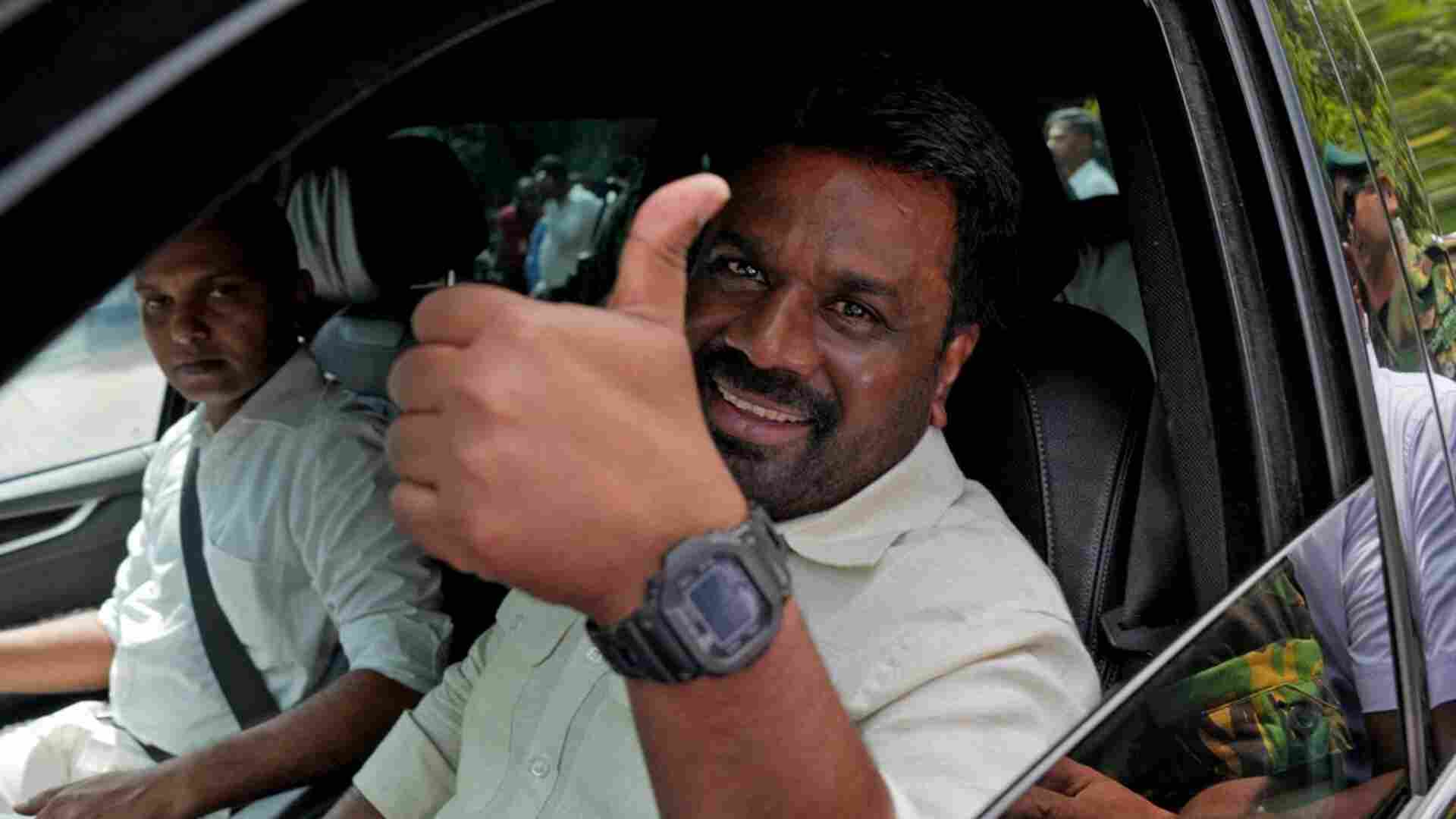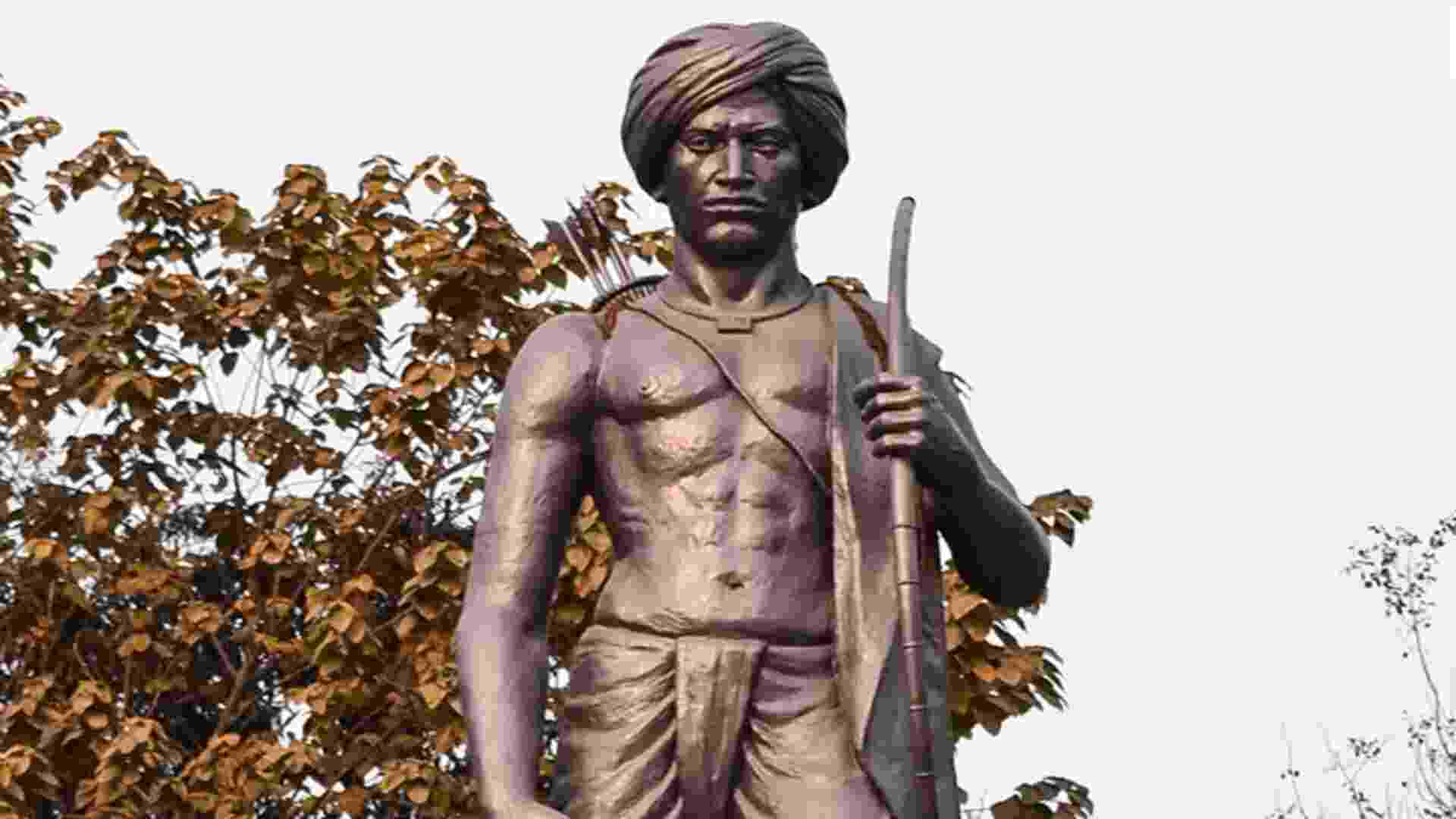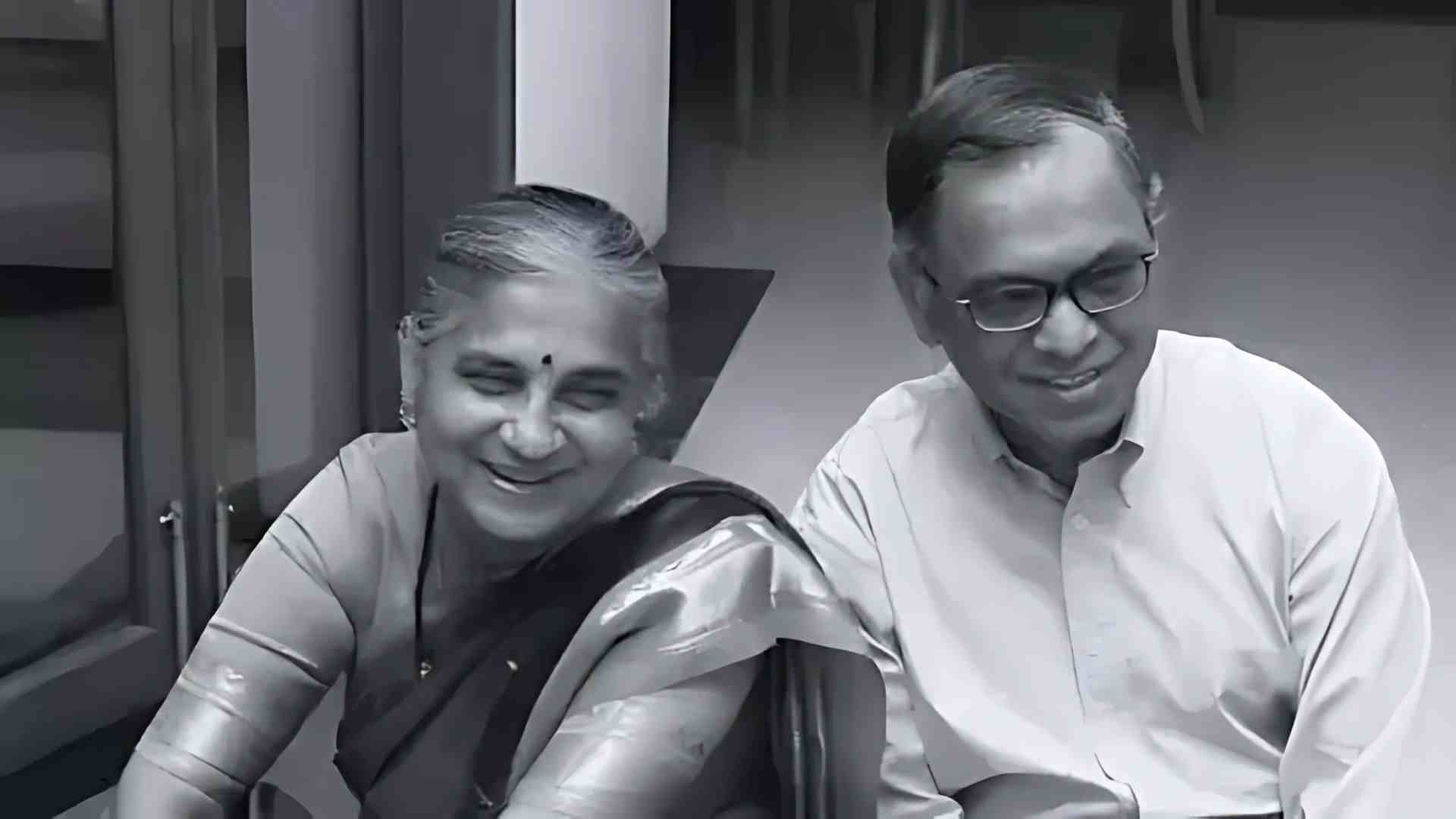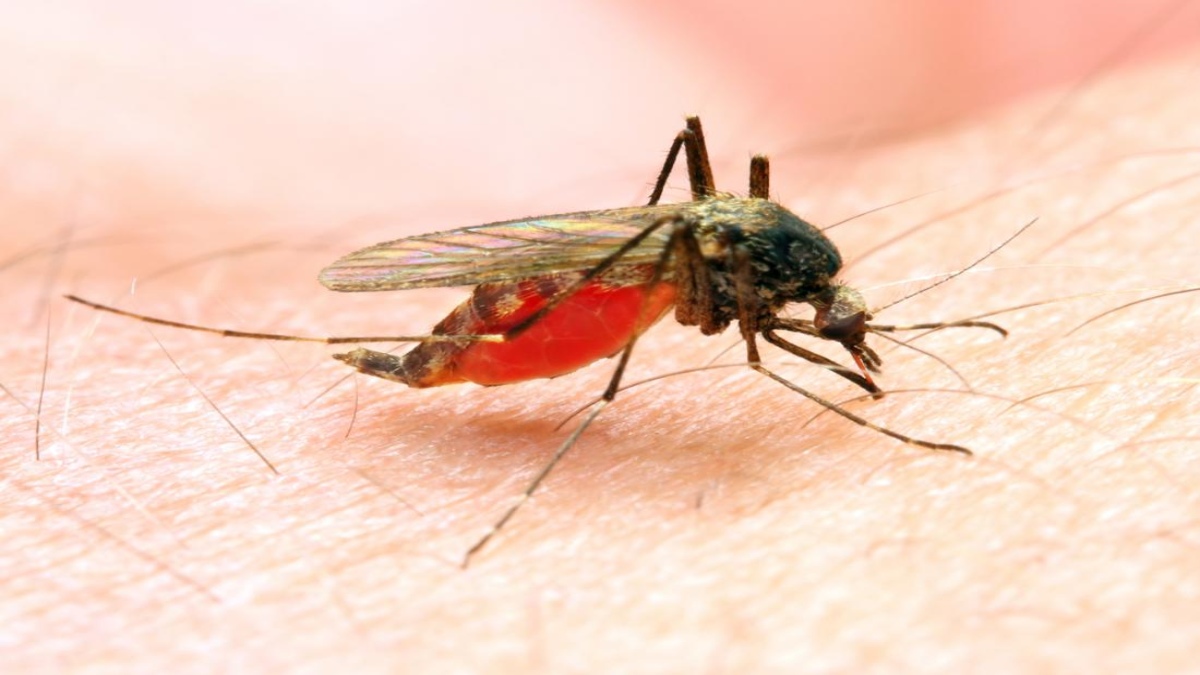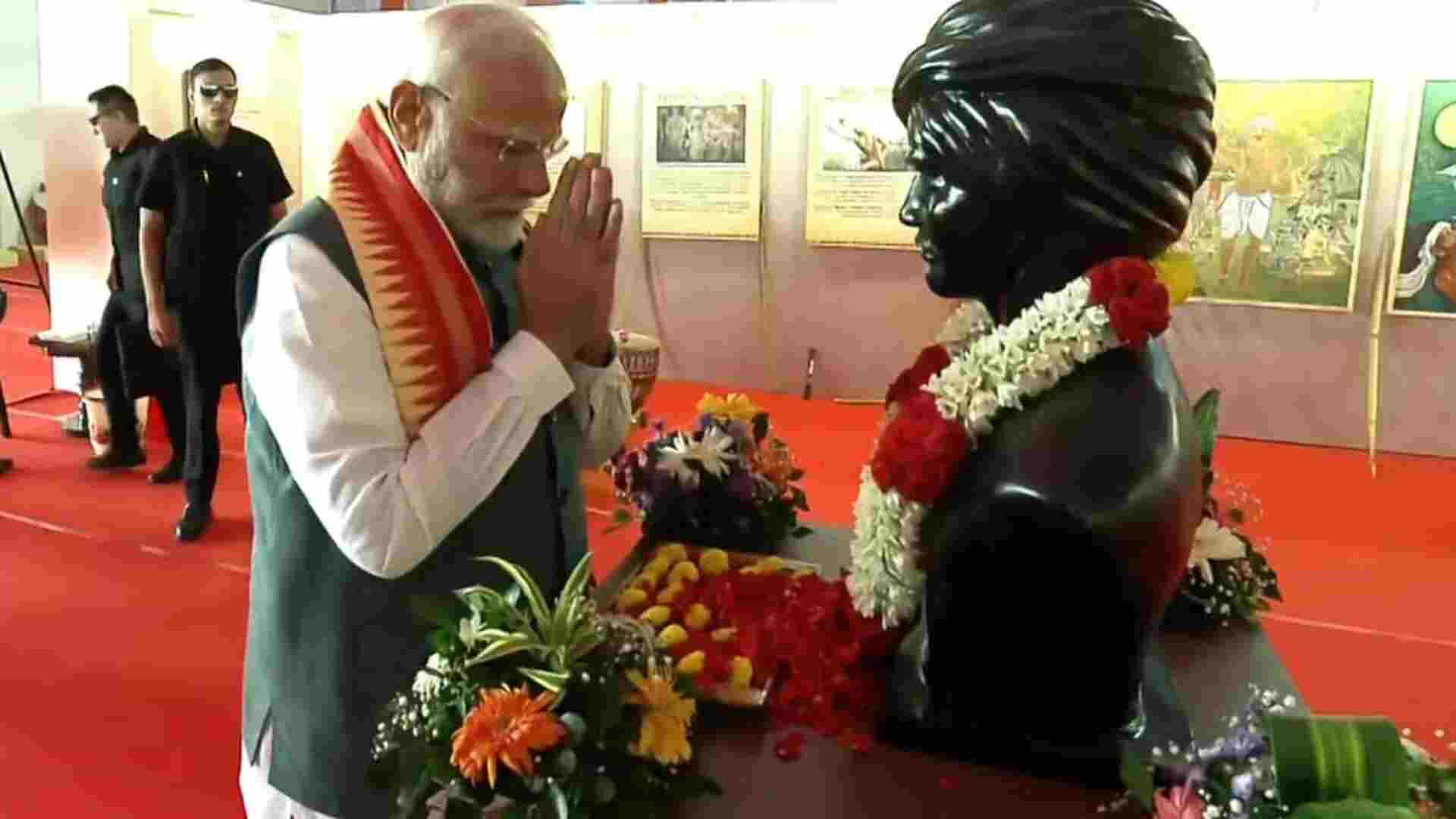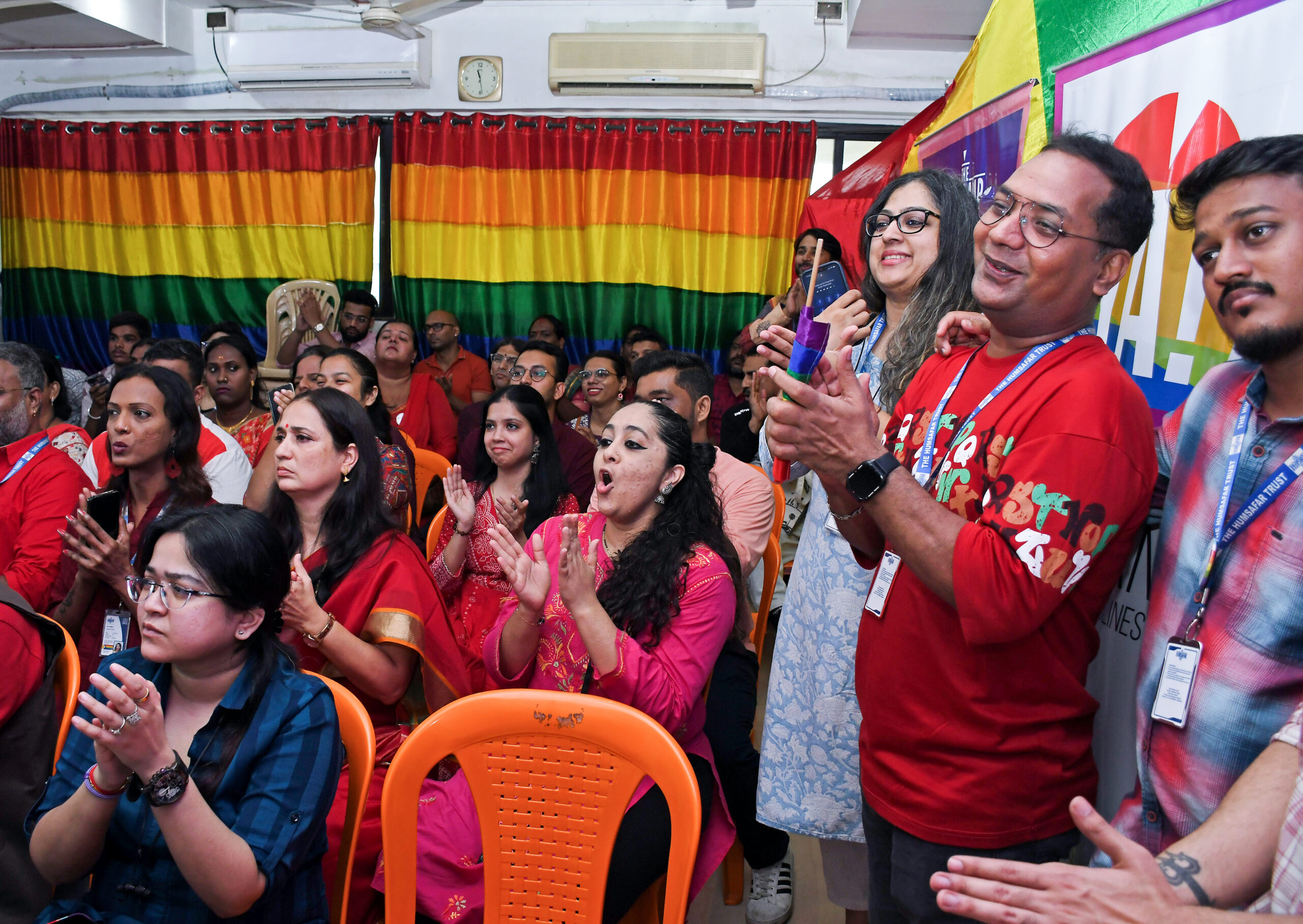
A five-judge constitution bench of the Supreme Court on Tuesday refused to accord legal recognition to same-sex marriage under the Special Marriage Act, ruling that it is within Parliament’s ambit to change the law for validating such union.
The top court, however, recognised equal rights for queer people and their protection, while calling for sensitisation of the general public so they don’t face discrimination. The apex court, while passing four separate verdicts, was unanimous in holding that there is “no unqualified right” to marriage, and same-sex couples can’t claim it as a fundamental right under the Constitution.
The bench headed by Chief Justice D.Y. Chandrachud was critical of the Centre’s stand that the pleas for legal validation of same-sex marriage was reflective of an urban elitist concept. Queerness is neither an urban nor an elite concept or characteristic, said the apex court, which pronounced the verdicts on 21 petitions seeking legal sanction for same-sex marriages. It, however, differed on certain aspects, especially on the applicability of adoption rules for queer couples.
The five-judge bench comprising the CJI, and Justices Sanjay Kishan Kaul, S. Ravindra Bhat, Hima Kohli, and P.S. Narasimha concurred on the main issue that the court can’t accord legal validation to same-sex marriage under the Special Marriage Act, and said the task has to be performed by Parliament.
However, Justices Bhat, Kohli, and Narasimha, in two separate judgements, differed with the CJI and Justice Kaul on certain legal aspects. The CJI said adoption regulations are held to be void as they are discriminatory towards queer people and denied them the right to adopt as a couple.
Differing with the CJI’s opinion, Justice Bhat held just because queer couples are not allowed to adopt a child does not mean that the regulations are void.
The LGBTQIA++ persons, who had won a major legal battle in 2018 in the Supreme Court, which decriminalised consensual gay sex, had moved the apex court seeking validation of same-sex marriage and consequential reliefs such as rights to adoption, enrolment as parents in schools, opening of bank accounts, and availing succession and insurance benefits.
However, the top court left all these for Parliament to decide. The CJI, whose views were supported by Justice Kaul in a separate verdict, recorded the Centre’s submission that it will set up a committee headed by the cabinet secretary to examine the administrative steps that could be taken for addressing “genuine humane concerns” of same-sex couples without going into the issue of legalising their marriage.
The CJI said the court can’t make law but only interpret it, and it is for Parliament to change the Special Marriage Act. Agreeing with the views of the CJI and Justice Kaul, Justice Bhat said the Constitution does not grant a fundamental right to marry.
At the outset, Justice Chandrachud said there are four judgments—by himself, Justices Kaul, Bhat, and Narasimha—in the matter. Directing the Centre, states, and Union Territories (UTs) to ensure the queer community is not discriminated against, the CJI said queer is a natural phenomenon known for ages and is neither urban nor elitist.
Justice Kaul said he agrees with the CJI on granting certain rights to queer couples. “Non-heterosexual and heterosexual unions must be seen as both sides of the same coin,” Justice Kaul said, adding that legal recognition of non-heterosexual unions is a step towards marriage equality. Delivering his verdict on the critical issue, the CJI said it is for Parliament to decide whether there is a need for a change in the Special Marriage Act regime. “This court can’t make law. It can only interpret it and give effect to it,” he said.
While reading out the operative portion of his verdict, Justice Chandrachud directed the Centre, states, and UTs to take steps to sensitize the public about the rights of queer people and ensure that sex reassignment surgeries are not performed on intersex children at an age they cannot fully comprehend the consequences.
The CJI also directed the police to conduct preliminary inquiries before registering an FIR against a queer couple over their relationship. He said homosexuality or queerness is not an urban concept or restricted to the upper class. To imagine queer as existing only in urban spaces would be like erasing them, Justice Chandrachud said, adding queerness can be regardless of one’s caste or class. He said it would be incorrect to state that marriage is a “static and unchanging institution.”
Justice Chandrachud said the ability to choose a life partner goes to the roots of the right to life and liberty under Article 21 of the Constitution. The right to enter into a union includes the right to choose a partner and its recognition, the CJI said, adding the failure to recognize such an association will be discriminatory. “All persons, including those queer, have the right to judge the moral quality of their lives,” he said.
The CJI said the apex court has recognized that equality demands that queer persons are not discriminated against. The law cannot assume that only heterosexual couples can be good parents as it would amount to discrimination against queer couples, he said referring to adoption by people in a homosexual union.
In his separate verdict, Justice Bhat said queer people have the right to choose partners, and the State cannot be obligated to recognize rights flowing from such a union. He said queer couples have the right to live together unhindered and undisturbed. Justice Narasimha, in his verdict, said there exists no unqualified right to marry.
On May 11, the bench had reserved its verdict on the pleas after a marathon hearing for 10 days. The apex court had commenced hearing arguments in the matter on April 18.
During the arguments, the Centre had told the apex court that any constitutional declaration made by it on the petitions seeking legal validation for same-sex marriage may not be a “correct course of action” as the court will not be able to foresee, envisage, comprehend and deal with its fallout.
The bench had made it clear during the arguments that it will not go into personal laws governing marriages while deciding the pleas seeking judicial validation for same-sex marriages and said the very notion of a man and a woman, as referred to in the Special Marriage Act, is not “an absolute based on genitals.”
Some of the petitioners had urged the apex court to use its plenary power, “prestige and moral authority” to push the society to acknowledge such a union which would ensure LGBTQIA++ lead a “dignified” life like heterosexuals. LGBTQIA++ stands for lesbian, gay, bisexual, transgender, queer, questioning, intersex, pansexual, two-spirit, asexual and ally persons.
Solicitor General Tushar Mehta welcomes verdict
NEW DELHI: The Solicitor General of India Tushar Mehta, representing the Centre in the case, spoke to ‘Legally Speaking’ on the final verdict on the same-sex marriage issue. He said, “I whole heartedly welcome the judgment. I am happy that my stand is accepted. All four judgements have taken the jurisprudence of our nation and the intellectual exercise which went into writing the judgments at a next level.
There are very few courts in the world where one can expect this level of intellectual and scholarly judicial exercise. This judgement would be read across jurisdictions.” “Today’s judgement balances the interests of individuals with the interests of a civilised society. It is an important step in jurisprudential development on the question of separation of powers and provides vivid and eloquent insights into the working of the Parliament, the Executive and the Judiciary which functions complimenting each other strictly as per the Constitution,” the SG added.
Petitioners, activists unhappy with verdict, but say there are positive takeaways
New Delhi: Though the Supreme Court has refused to give marriage equality rights to the LGBTQIA+ community noting that conferring legal status to civil union can only be through a law enacted by Parliament, petitioners and rights activists, though disappointed, were of the view that the verdict had many observations that were in their favour.
“It is with bated breath that everyone has waited for the same-sex marriage judgment and I am so happy to see that in the judgment of the Chief Justice, the Chief Justice has in fact said the same bundle of rights which every married couple has should be available to the same-sex couple,” said senior advocate Geeta Luthra, who appeared for some of the petitioners in the marriage equality case, whose ruling was pronounced by the apex court today.
Another petitioner Harish Iyer, who is an LGBTQIA+ rights activist, said, “Though at the end, the verdict was not in our favour so many observations (by Supreme Court) made were in our favour. They have also put the responsibility on Central govt and Central govt’s Solicitor General…”
“(Now) it is important for us to go to our elected government, MPs and MLAs and tell them we are as different as two people. War is underway…it might take some time, but we will get societal equality,” Iyer added.
One of the other petitioners and activist Anjali Gopalan said she was disappointed with the same-sex marriage equality verdict, but what was crucial was that the legality of marriage of members from the trans community was clarified.

